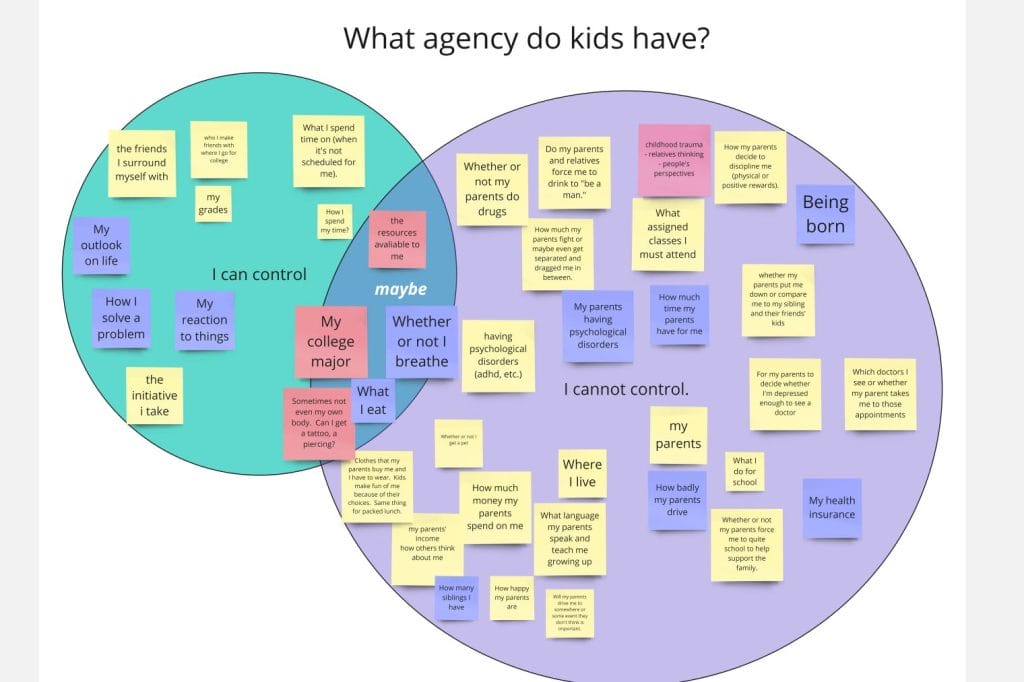In our Youth Ambassador orientation, fellow youth ambassadors and I created a venn diagram of what kids could and couldn’t control. As you can see, the things youth actually can control in their lives is very little. Based on what was written in the “I cannot control” circle, what do you think that says about today’s parenting? Is there anything you would add to either circle?






Leave a Reply